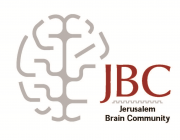
Asaf Marco
I received my Ph.D. at Bar Ilan University (under the mentorship of Prof. Aron Weller and Dr. Noam Meiri), where I acquired training in the field of developmental psychobiology, behavioral neurobiology and neuro-epigenetics. By feeding rats a chronic high fat diet, I examined behavioral, molecular and epigenetic effects on three consecutive generations. My studies showed that during early sensitive periods, the food content, body weight, and even maternal diet, can lead to epigenetic "malprogramming", resulting in leptin resistance, obesity and long-lasting health risks in the offspring.
After graduating, I joined Prof. Li-Huei Tsai’s laboratory at the Picower Institute for Learning and Memory at Massachusetts Institute of Technology (MIT). My primary work provided the first comprehensive molecular landscape of hippocampal engram cells, where we discovered an intriguing connection between epigenetic alteration, 3D-chromatin folding, and memory formation. Furthermore, I was involved in multiple related projects, where we studied how dysfunctions in spatial genomic organization facilitate the behavioral phenotypes observed in neurodegenerative and neuropsychiatric disorders, such as Down Syndrome and Alzheimer Disease (AD).
In my laboratory, we aim to further conduct in-depth studies on these mechanisms and decipher how different environmental stimuli shape the brain epigenome and regulates 3D-chromatin folding and organization. Our primary goal is to discover how these modulations leads to long-lasting changes in transcriptional programs, neuronal properties, physiology, and behavior. A secondary goal is to understand whether epigenetic programming in the early stages of development can affect the behavioral-physiological phenotype of the adult organism, and how these changes can pass onto future generations.
To deliver on our primary mission we study epigenetic mechanisms and 3D-chromatin architecture underlying:
- Brain circuits of appetite and energy balance control, in both healthy and diseased states.
- Learning & Memory.
- Adaptive and maladaptive response to stress

